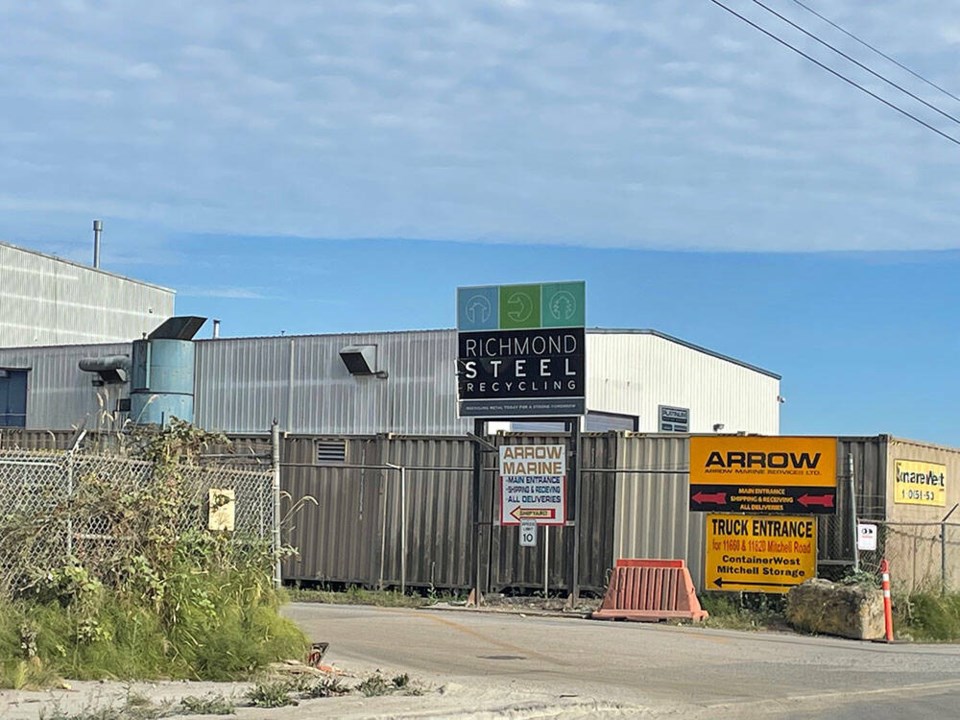A Mitchell Island metal and used car recycling company will have to apply for a permit to discharge excess water into the Fraser River and won’t be allowed to do so on a temporary basis in the interim.
Richmond Steel Recycling appealed after the director of the Environmental Management Act denied the company a temporary waste discharge approval.
But the Environmental Appeal Board said the director was correct in his original decision and denied the appeal.
The temporary approval was originally rejected by the director saying the application was to discharge stormwater, but, in fact, the company was discharging effluent from its recycling business.
Furthermore, the discharge “continues to exceed” B.C. water quality guidelines and/or BC Hazardous Waste Regulation criteria as it pertains to several contaminants.
The director noted the most appropriate regulatory instrument is a permit, rather than a temporary approval.
Richmond Steel Recycling argued the director didn’t give the “usual review and discussion opportunities associated with discharge authorization applications,” and denied the company "procedural fairness.”
In her decision, Diana Valiela, panel chair, stated the director didn’t break procedural fairness.
Furthermore, Valiela wrote in her decision, the director concluded, “reasonably and using well-supported information,” that the company’s operations have been generating “ongoing and significant discharges for an indefinite period,” the effluent doesn’t meet water quality guidelines and “there was lack of evidence that this failure would be remedied.”
Order made after heavy rainstorm in 2019
The original order to stop discharging effluent into the river stemmed from a heavy rainstorm in December 2019.
On that day, water was seen bypassing an oil/water separator, grit chamber and bioswale, and discharging directly into the river.
Environment Canada took water samples and found levels of aluminum, copper, zinc and PCBs exceeded the B.C. Water Quality Guidelines.
In August 2021, the company was ordered to identify contaminants and develop a waste plan by the province.
The company hired an environmental consultant, and in February 2022 a temporary water treatment plant was installed at the facility.
However, contaminants were still being found in the discharged water; in April, a second order was issued, demanding the company stop discharging water into the river.
The company appealed this second order, and later asked for a stay of the order until the appeal was heard.
The panel acknowledged the company’s operations are “in the public interest” in that it recycles end-of-life products, serving an “important environmental purpose.”
But the director argued the “ongoing effluent discharge poses unquantifiable risks to the environment, and there is the potential for irreparable harm to the environment if the Order is stayed.”



